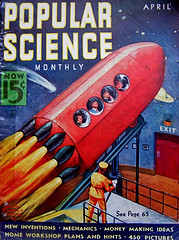Badges for failure
Two themes that we saw, heard, and read lots about in 2012 were the value of 'failure' and the seemingly inexorable march toward 'gamification'. The failure theme is mostly about how you need to fail faster and more often, how you really only know you are pushing the envelope when you fail, and how lots of incredibly successful people have some pretty significant failures in their past. It is meant to make us feel better I guess, because if there is any one thing most folks can relate to it is failure.
But we can take comfort in failure I suppose. At least that seems better than the alternative, drawing the blinds, getting under the covers, and watching a 'Real Housewives' marathon.
The 'gamification' angle? Well that is mainly the idea that introducing mechanics and aspects of games, (points, leaderboards, badges, levelling up, etc.), to work and work processes will make them fun, (Yay for fun!), and make folks happier, more productive, and more engaged, (ACK, another 2012 buzzword), with their work.
Whether or not you buy-in totally to either or both of these ideas, the value of failure, and the gamification trend; I bet I can convince you that just like other epic combinations, (chocolate and peanut butter, Sonny and Cher, Deron Williams and Jerry Sloan), combining these trends will result in an incredible result.
Just how does one combine failure and gamification?
With Demerit Badges of course. Check out some of these 'awards' for failure, courtesy of Demeritwear.com:
 Smartphone swimming
Smartphone swimmingUtility Shutoff
Out of gas
Awesome right?
With the Demerit badges you get the best of both worlds - utter and total failure, (which we keep getting told is great for us), as well as one of the fun elements of gamification, i.e. some tasty and colorful badges. Think about all the career development and fun you can have handing out a few of these Demerit Badges at your next team meeting, or giving a 'hard truth' performance review to someone on your staff!
That is, in my best former consultant-speak, a Win-Win!
Have a great weekend!

 Steve
Steve


